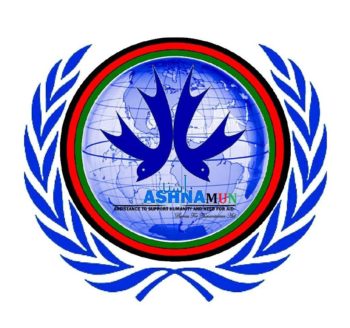
ASHNA International Model United Nations (ASHNAIMUN):
ASHNAIMUN is an academic simulation of the United Nations that aims to educate participants about current events, topics in international relations, diplomacy, formal session’s current political, social and economic issues and the United Nations agenda. The participants role-play as diplomats representing a country or NGO in a simulated session of a committee of the United Nations, such as the Security Council or the General Assembly. Participants research a country, take on roles as diplomats, investigate international issues, debate, deliberate, consult, and then develop solutions to world problems. More recently, simulation of other deliberative bodies, such as the United Nations Security Council, has been included in Model United Nations, even if they are completely unrelated to the UN or international affairs as a whole. In general, the participants that the executive panel considers to be most contributing are given awards, such as ‘Best Delegate award.
Mission:
ASHNAIMUN advances understanding of the United Nations and contemporary international issues. We positively affect the lives of participants and prepare them to be better global citizens through quality educational experiences that emphasize collaboration and cooperative resolution of conflict. We envision a world comprised of civically engaged people who strive for peaceful, multi-lateral conflict resolution and equitable, sustainable human development.
Aims:
ASHNA International Model United Nations (ASHNAIMUN) aims to develop the Youth in political leadership, good governance, human rights, women empowerment, security, peace building, youth power in community through the International events, Conferences and Trainings.
Objectives:
During the dialogue all participants will gather to call for action on the following objectives:
1. To promote youth skills with global youth discussions, in order to address the problems to develop the solutions to world problems.
2. To promote youth skills on leadership, stress management, technology, personality making and peace rebuild process for the world.
3. To raise an informative generation on the current situation of youth migration with anticipated behavior adaptation and consequently admission to decision making among youth.
4. To foster youth action towards implementation of ideas brought forward by the young people for the benefit of the societies.
5. To address the challenges and determinants of migration faced by youth today.
6. To promote equality of opportunities and facilities between young men and women;
7. To formulate the environmental, political, economic and cultural factors that are associated with migration.
8. To ascertain the obligations of society to respect, protect and fulfill the right to freedom of movement for/among the young people.
9. To classify the role and the contribution of the national youth councils and other stakeholders towards improving and sustaining resourceful migration factors as a human rights issue.
10. To form and advance the national, regional and international policies governing youth migration for the present and future.
11. To integrate networking, collaboration and cooperation between public and private sectors, civil societies and other stakeholders to address the issue of youth migration.
